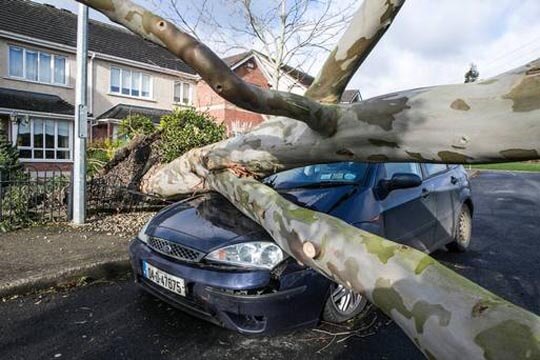What insurance policies cover storm damage?
Most building insurance policies state that they will cover storm damage. However, companies are known to disagree about what constitutes a storm. Guardian Money handled a case last year in which an insurer refused to cover the cost of repairing a roof that was damaged by Storm Christoph. These types of disputes are a major complaint that the Financial Ombudsman Service receives about storm damage claims not paid.
Tips to File an Insurance Claim After a Storm
To begin the process, contact your insurer as soon as possible. Your policy number, best phone number, and email address should be provided to your insurer. Insurers visit the worst-hit areas first after a major storm. You should be prepared to give a detailed description of the property damage. If your family has special needs, explain them. To be ready for the visit, ask your insurance company when they can contact you. It's a good idea for adjusters to have the number of their supervisors, as they may be located in areas where cell towers are damaged. To file a claim for flood insurance, contact the broker or agent who sold the policy.
Document your loss. Most likely, the insurance adjuster will inspect your property and auto to determine if there are any damages. They will then write you a check to replace, repair or rebuild. It is a good idea to take photos and record the details of the damaged items. Many companies will require you to keep an inventory.
Make sure to check with your insurance before you throw away any damaged materials or items. Your adjuster will need to see storm-damaged items. However, if your local municipality requires you to dispose of them for safety reasons take photos to assist with the claims process.
Subscribe to SMS/text alerts. Many insurance companies offer SMS/text message alerts to notify you about the status of your case. When you report your claim, receive text messages on your phone. Also, it will notify you when your estimate has been made and when payment has been sent.
Find out what emergency services are available. Many companies will send an approved emergency service company to your home to help protect it from more damage. Your homeowner's insurance will pay you a check to cover additional living expenses if your home is damaged beyond repair.
Keep a claimed journal. It is essential to keep good records when you file a claim. Keep a record of all people you have spoken to regarding your claim. Notify them of their name, title, and contact information. Keep track of the time, date, and any issues that were discussed. The claims process will be easier and simpler if you're organized.
This definition may be included in your policy by your insurer. Or, it may follow its own rules. Your insurer will decline to pay if the weather conditions in your area do not meet these criteria.
How do I claim?
You should inform your insurer as soon as possible that your property was damaged and that you are interested in filing a claim. As forecasters have been talking about the storm for days, most insurers offer 24-hour assistance and should be prepared to handle the aftermath.
Before arranging for urgent repairs or a place to stay, speak to your insurer.
Your insurance claim for storm damage policy may provide coverage for the cost of emergency repairs. Inform your insurer about the work required and get receipts. You may be eligible to receive your money back.
Make sure you inspect your property thoroughly and keep a record of any damage. Keep all evidence you have, and take photos.
What topics will you be covering?
It will depend on the policy. This will pay for damages to your home if you have building coverage. It will also cover the cost of getting items fixed.
If you are unable or unable to live on your property due to the damage, it will likely cover accommodation costs. The amount it will pay will depend on how much coverage you have purchased and the excess you selected - this sum is what you pay towards any work. The individual policy will determine the extent of coverage it provides for garden sheds.
Contents insurance will cover your possessions. This policy may have covered garden furniture or bikes. If you don't have this coverage, you will not be eligible to file a claim for damages.
Comprehensive insurance policies will cover your vehicle if it is struck by a tree.
The contents cover can often be used to protect your freezer. If you buy this and there is no power, make sure to take photos of everything that you need to toss.





Comments